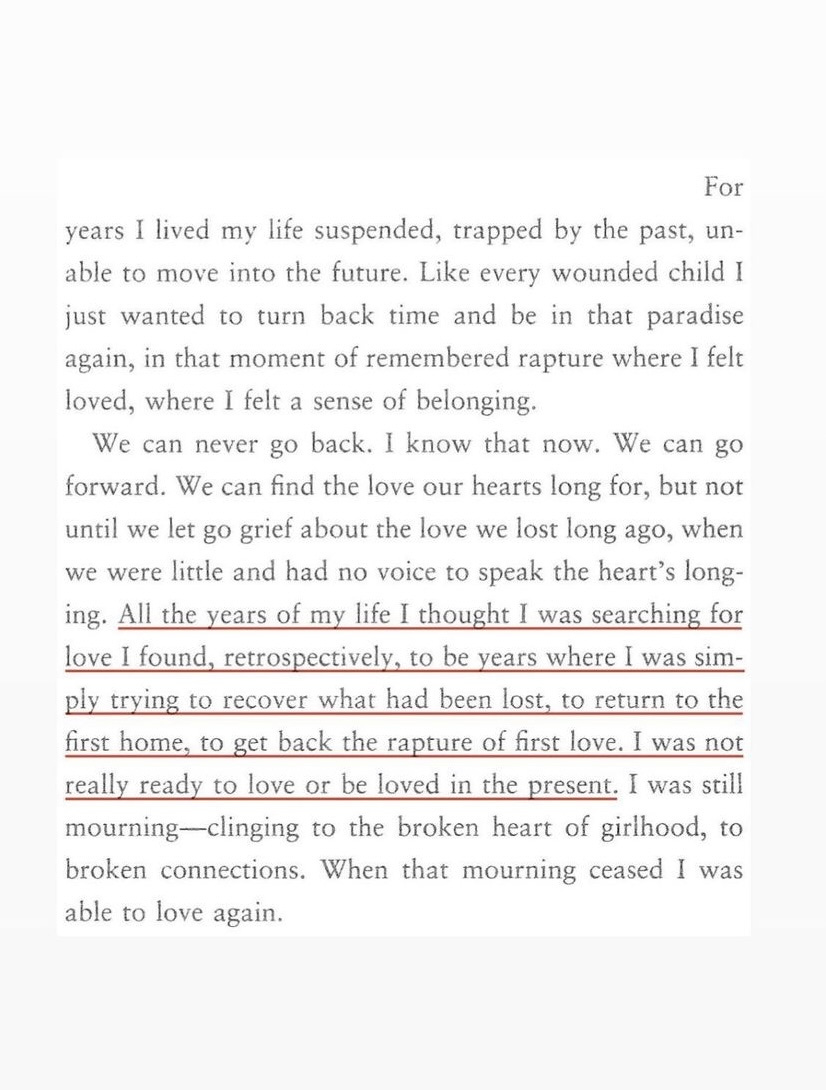Hello and welcome to all of our new readers - I’m glad to have you here! Can you believe we only have one more chapter of All About Love? Time is flying. Let’s get started, shall we?
A few weeks ago, I grabbed my journal to let some things off my mind. My journaling at that time of the day seemed so random, but it was so pressing at that moment for me to know the why behind my names. I felt there would be answers in that search.
I wanted to know what my Grandmother’s headspace, emotions, thoughts, and feelings were like around the time of my birth. Of all the names she could’ve created or chosen for me, I wanted to know why she chose the name she did for me.
My Mothers named me. I don’t ever want to lose sight of the importance of that reality.
My Mother, for my first name - Chinyere (in Igbo means “God’s gift or God gives”). My Grandmother, for my answered name, when I am with her - Haranchinkpa (in Igbo means “leave all your troubles/worries to God”).
It’s why I hold names so dear. There’s a weight to them. Stories are unveiled because of them. Direct portals to the Divine and all spiritual beings are carved through them. Naming gives power, meaning, and direction to both the Giver and Receiver.
The answer from my Grandmother on why she chose my name is still unfolding. For this space, I share what could be a possible reason, among many.
What is birthed out of seasons of joy, loss, conflict, stability, change, and more?
Less than a year before my birth, my Grandmother’s husband passed away.
They shared at least six decades of their life. Seven children. Sixteen grandchildren at that point. She’d describe him as her best friend in some of our talks. They did everything together. What a profound physical loss that was to her.
How does grief, in its disguised and blatant ways - shape who we are and those yet to be?
What does it mean, and what does it take to declare that God still gives and that God is still able to carry + hold all burdens and worries? What does it mean to express those things in the middle of loss, grief, and worry??
I don’t think there’s a clear cut answer to that, but I can only assume that my Grandmother embodied at that moment what bell hooks continues to teach in this chapter of a love that heals, a love that transforms, a love that holds space for grief, a love that envisions and imagines, and a love that creates…
In no way is this me saying that my birth solved all the pain from my Grandfather’s passing (there are plenty of other ways to be out-of-pocket 🥴). I am saying that we are all marked and hopefully made malleable through grief by love. I mean that grief and loss still remind us of our capacity to love and be loved.
My Mama, who experienced the physical passing of her Love expressed this love by calling forth a new name. Her name for me not only speaks over me as I go through life but speaks to her as she heals day by day.
I gather from looking into my family’s history and the naming process of my Grandmother that her pattern of asking God to reveal to her the name to give to the new child is not entirely marked or shaped by loss. Her ability to love, create, prophesy, and more isn’t solely out of pain. And I find this part by bell hooks on page 210 so key because
Their presence reminds me that we do not need to undergo anything dreadful to feel deeply, that we never need suffering to be imposed upon us by acts of violence and abuse.
Talks, conversations, social media graphics, and cliche statements have all said a variation at some point on how you can’t love fully or well without going through pain.
Pain, loss, heartbreak, and grief happen at any point in life - but they aren’t prerequisites to loving well.
If anything, this chapter gives permission to us who grieve and those who seek to love well - in and out, that we can take part in this love that redeems, restores, heals, and gives way to possibility and births.
hooks says on p. 209 that
No matter what has happened in our past, when we open our hearts to love we can live as if born again, not forgetting the past but seeing it in a new way, letting it live inside us in a new way. We go forward with the fresh insight that the past can no longer hurt us.
Until our next letter,
Chinyere






